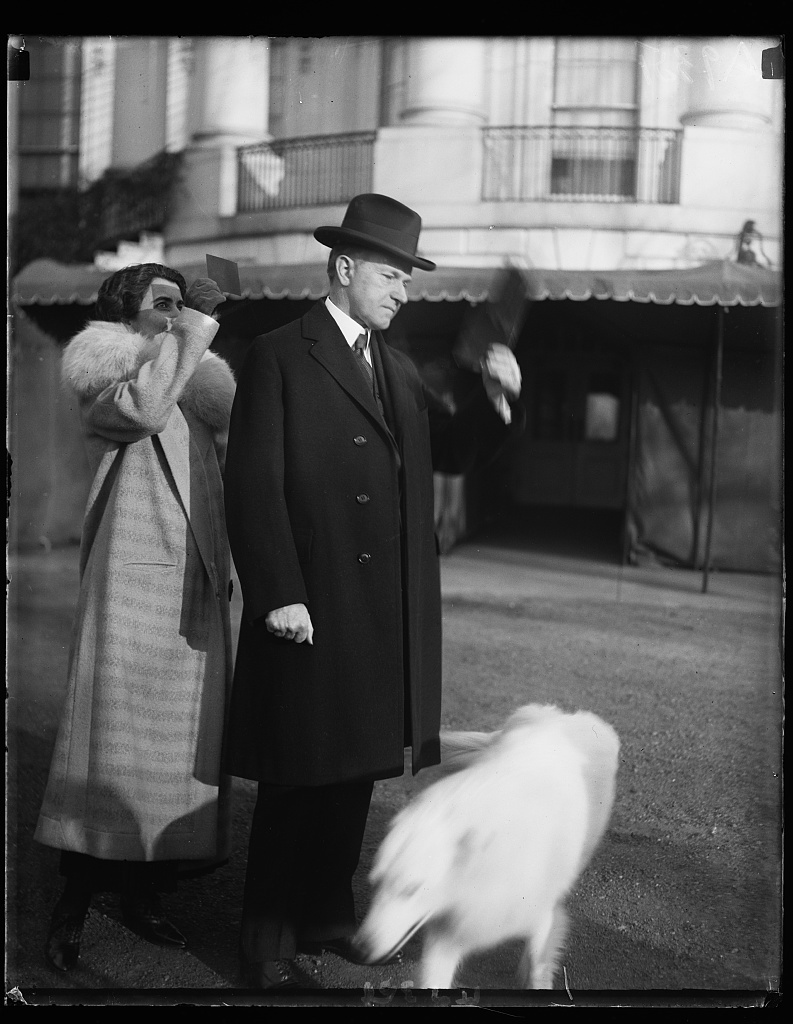During the solar eclipse of 1925, most inhabitants of Earth were relatively relaxed during the brief extinguishing, even if there were a number of laborers who refused to report for work until the sun had reintroduced itself and some domesticated animals were said to be disturbed. It was so unthreatening that President Coolidge, accompanied by the First Lady and their dog, observed the opening minutes of the spectacle from the South Lawn through a piece of smoked glass, then hastily returned to the Oval Office to continue working before the natural wonder had “reached its maximum.” It was appointment viewing but not the end of the world.
That wasn’t always the case, however. For much of human existence, an eclipse was viewed as a sign, an omen, a curse. In anticipation of the August 21 darkening, Ross Andersen has written an excellent Atlantic article about the history of humans watching the ultimate blackouts and how that relates to our deeply unsettling political moment, which is lorded over by a President nowhere near as coolheaded as Coolidge. An excerpt:
What could be more traumatic than the abandonment of the sun? This is the energy source that powers Earth’s photosynthetic food chains, the ball of fire that anchors and warms us as we twirl around in the cold cosmic void. The sun is the giver of life. It is also the giver of light, the ethereal stuff that illuminates the world, making it manifest to the mind. Philosophers have often likened sunlight to consciousness itself. In Plato’s cave, it is sunlight that awaits those who throw off their chains. And in Descartes’ dark forest of metaphysical confusion, enlightenment comes only when sunbeams break through the canopy.
You can imagine what it would suggest about your own fate, were you to see the white-hot center of your sensory world vanish, with no promise that it would return. The sun is the most robust of all physical phenomena. Even today, our scientific end-times tales involve its death. In deep antiquity, a few minutes without the sun would have felt like an eternity, or like a stepping out of time altogether. It would have felt as though some dark new chaos had dawned. The ancient Ojibwe peoples of the American Midwest felt this distress acutely: They tried to reignite the blacked-out sun by firing flaming arrows into it.
The sun is not the kind of thing you expect to need rekindling. The sun is fearsome. It can burn you, blind you, drive you to thirst or even madness. It can kill you and bleach your bones where they lie. The ancients warned against even approaching the sun, as Phaethon and Icarus did to their peril. Their sun gods weren’t cuddly. They were disapproving fathers, or birds of prey. They wielded symbols of strength and domination, like the beams of light hurled to Earth’s surface by the sun god Ra, which Egypt’s sculptors reconceived as obelisks, monuments to power that have lost little of their potency across 4,000 years. One still towers over the capital of the world’s most powerful country. It looks a lot like those that were hauled out of Ancient Egypt to stand in the piazzas of Imperial Rome. And then there is that other symbol of power, the crown, a golden ring made to look like a sunburst adorning the sovereign’s head.
This close identification with the sun might explain why kings have long feared eclipses. A surprising number of popes and monarchs have died in their wake. Louis XIV, the “sun king” who so loved decadent gold decor that he chose the solar sphere as his emblem, died just after an eclipse hung in the skies above Paris. Some ancient rulers, including Alexander the Great, executed a substitute king after an eclipse, as a kind of sacrificial hedge.
Of all the stories about earthly kings being laid low after an eclipse, my favorite comes from the psychedelic end-times text of Christianity, the Book of Revelation. In a dream, John of Patmos watches as the seals on the book of judgment rip open, each triggering a fresh calamity. After the sixth seal is torn, the sun darkens, as though in eclipse, and nature begins shedding its fundamental features. Stars drop to the Earth like fruit falling from the boughs of a tree. The planet’s crust shakes with unprecedented violence, displacing whole mountain ranges and islands. And all the world’s kings, princes, generals, and the rich slink away to hide among the rocks thrown off by the geological mayhem, or in caves, like Peter Thiel in his New Zealand bunker.•
Tags: Ross Andersen

